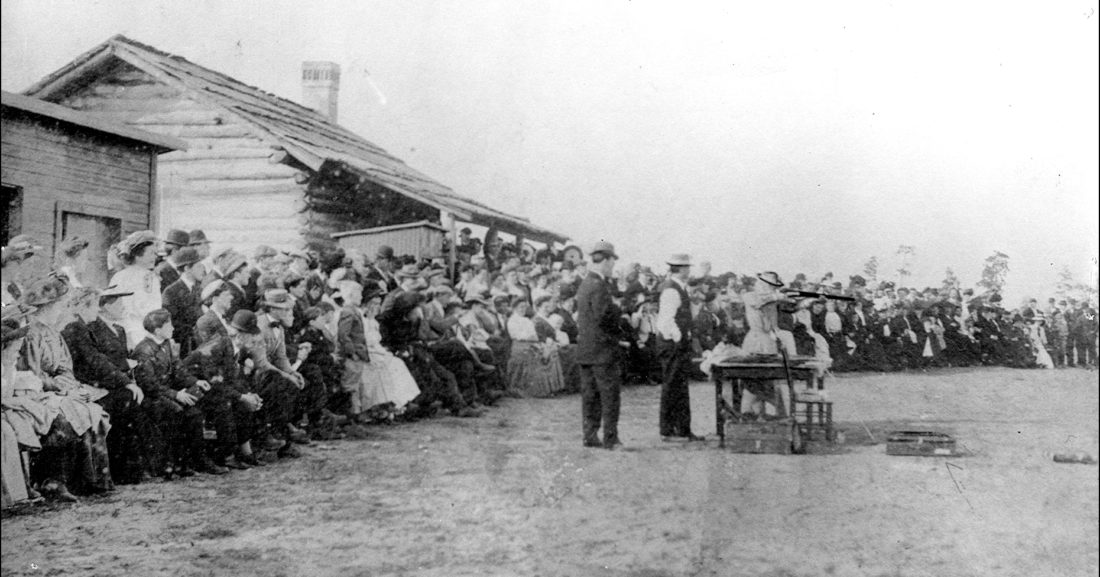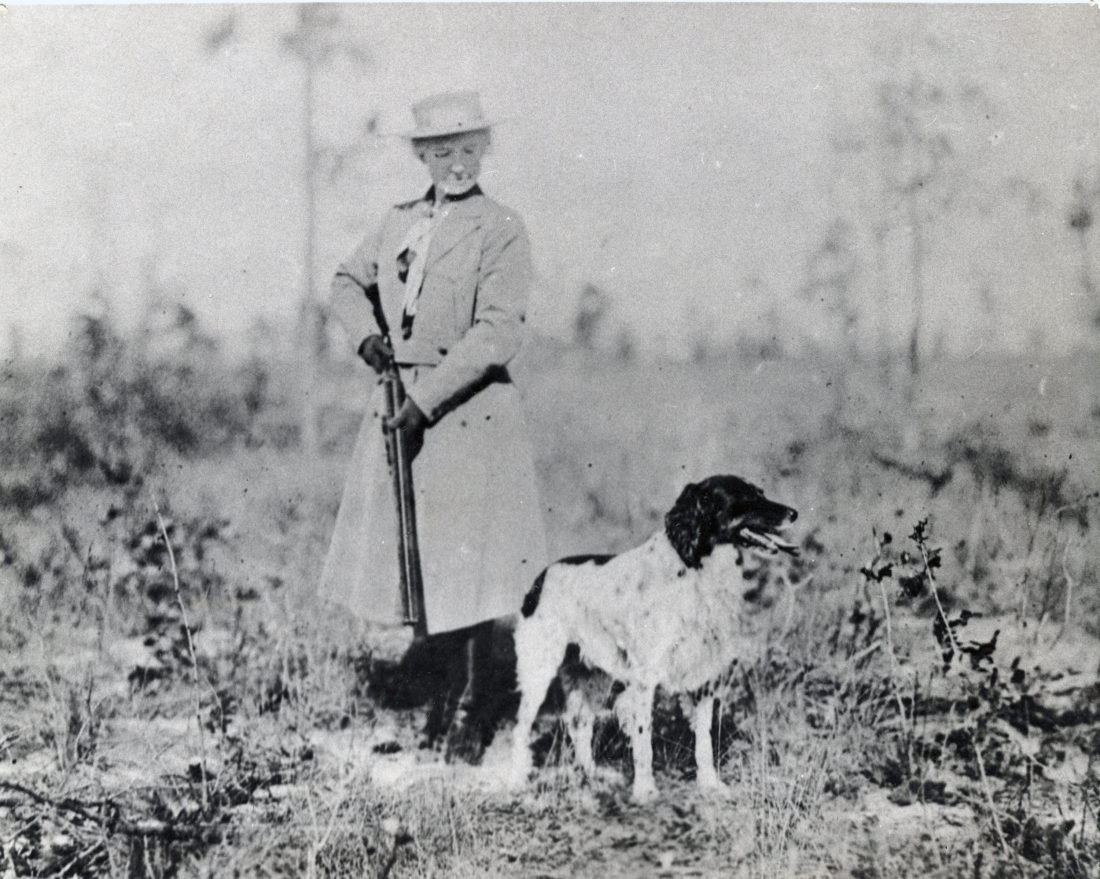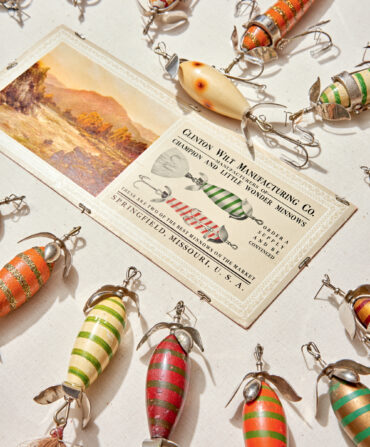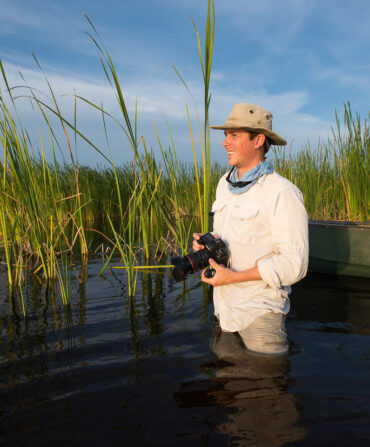“There’s a famous lady who lived here and her name was Phoebe Moses,” Marva Kirk says on her Pinehurst, North Carolina, history tours. “Have you ever heard of her?” More often than not, the answer is “no,” but when Kirk tells the visitors that Moses’s stage name was Annie Oakley, the world-famous sharpshooter, eyes inevitably brighten with recognition. “Most people are surprised she lived here,” Kirk says.
Pinehurst may now be known as the “Home of American Golf,” but when the affluent Boston businessman James Walker Tufts purchased the land to found the village in 1895, golf was little more than an afterthought. People instead originally came to Pinehurst for shooting and hunting sports, lured as well by the tranquility to be found among the longleaf pines and the temperate weather. Tufts enlisted the firm of Frederick Law Olmstead, the lauded designer of New York City’s Central Park, to lay out the village, and Tufts opened the Holly Inn there on New Year’s Eve 1895, followed by the Carolina Hotel in 1901, the largest frame hotel in the state at the time.
The nation’s wealthy elite took notice. Many of the most influential people of the Gilded Age came to Pinehurst seeking rest, recuperation, and escape from northern cities. Presidents Teddy Roosevelt and Warren G. Harding, pioneers of industry John D. Rockefeller and John P. Morgan, and many governors and senators all spent time in the Southern utopia. There’s even a nod to the region’s therapeutic qualities in the first stanza of a 1904 poem by the writer Leonora Monteiro Martin, which was eventually adopted as the official Tar Heel Toast:
Here’s to the land of the long leaf pine,
The summer land where the sun doth shine,
Where the weak grow strong and the strong grow great,
Here’s to “Down Home,” the Old North State!
That’s where Annie Oakley comes in.
As friends of James Walker Tufts’s son Leonard, Oakley—then already a legend thanks to her star turn as the “Little Sure Shot” in Buffalo Bill’s Wild West Show—visited Pinehurst often with her husband and fellow marksman Frank Butler, both drawn by the area’s abundant hunting and shooting opportunities. Like so many others in the era, they came to Pinehurst seeking fresh air and relaxation after Oakley was injured in a 1901 accident near Lexington, North Carolina, when Buffalo Bill’s train derailed. But the couple is most known in Pinehurst for the seven seasons they wintered there beginning in 1916 following their retirement from entertainment.

Oakley’s times in Pinehurst were reportedly some of the happiest of her life. No longer tied down by a hectic performance schedule, she put on exhibitions at the Pinehurst Harness Track and astonished onlookers by pulling off tricks like shooting holes in coins and playing cards tossed into the air, including, reportedly, in the dining room of the Carolina Hotel. She had long shot apples off of her husband’s head, until 1916, when Pennsylvania’s then-governor, Martin Brumbaugh, saw the routine while visiting Pinehurst and warned of what would happen if she ever missed. Instead, she switched to captivating spectators by shooting targets backward and over her shoulder with the help of a mirror or the reflection from a Bowie knife. Not looking for a rocking chair, Oakley’s retirement also consisted of managing the Pinehurst Gun Club and continuing to teach shooting. She particularly believed in the power of teaching women to shoot—it’s estimated she helped 15,000 women learn during her lifetime.
The area saw a growing interest in shooting sports during those years—Pinehurst loved her, and she loved the community back. When World War I started, she offered her services to teach soldiers to shoot at nearby Fort Bragg. The commanding general declined, but she was invited to perform for the troops many times. Oakley even had her gold medals melted down and given to the ladies of the Moore County Hospital Auxiliary as part of their efforts to build the Pinehurst hospital, now the nationally recognized FirstHealth Moore Regional Hospital.
More than a century later, sport shooting activities in Pinehurst are still going strong, a legacy built in part by one barely five-foot-tall woman. “That’s why I admire Annie Oakley,” says Kirk, who leads history tours through her Kirk Tours & Limousine and feels a personal connection, too—after being named the first Deputy U.S. Marshal in North Carolina in 1980, Kirk joined the military and became an expert in weapons qualification shooting. “Because of her ambition, and that she stood up for [women]. She shot her first squirrel at six years old. She stood up and fed her family. She knew she could do something, she just needed to have the chance. That is remarkable.”








